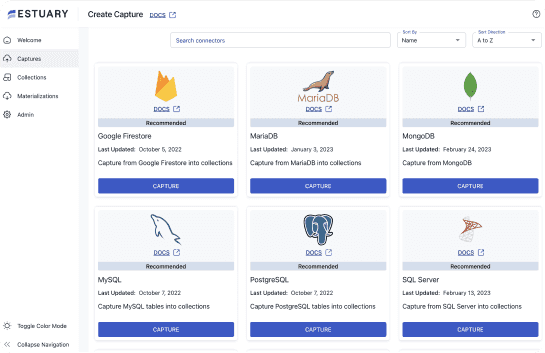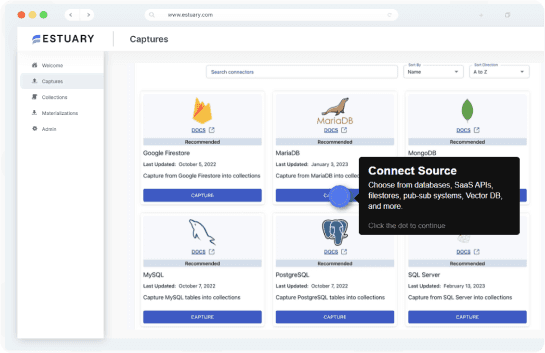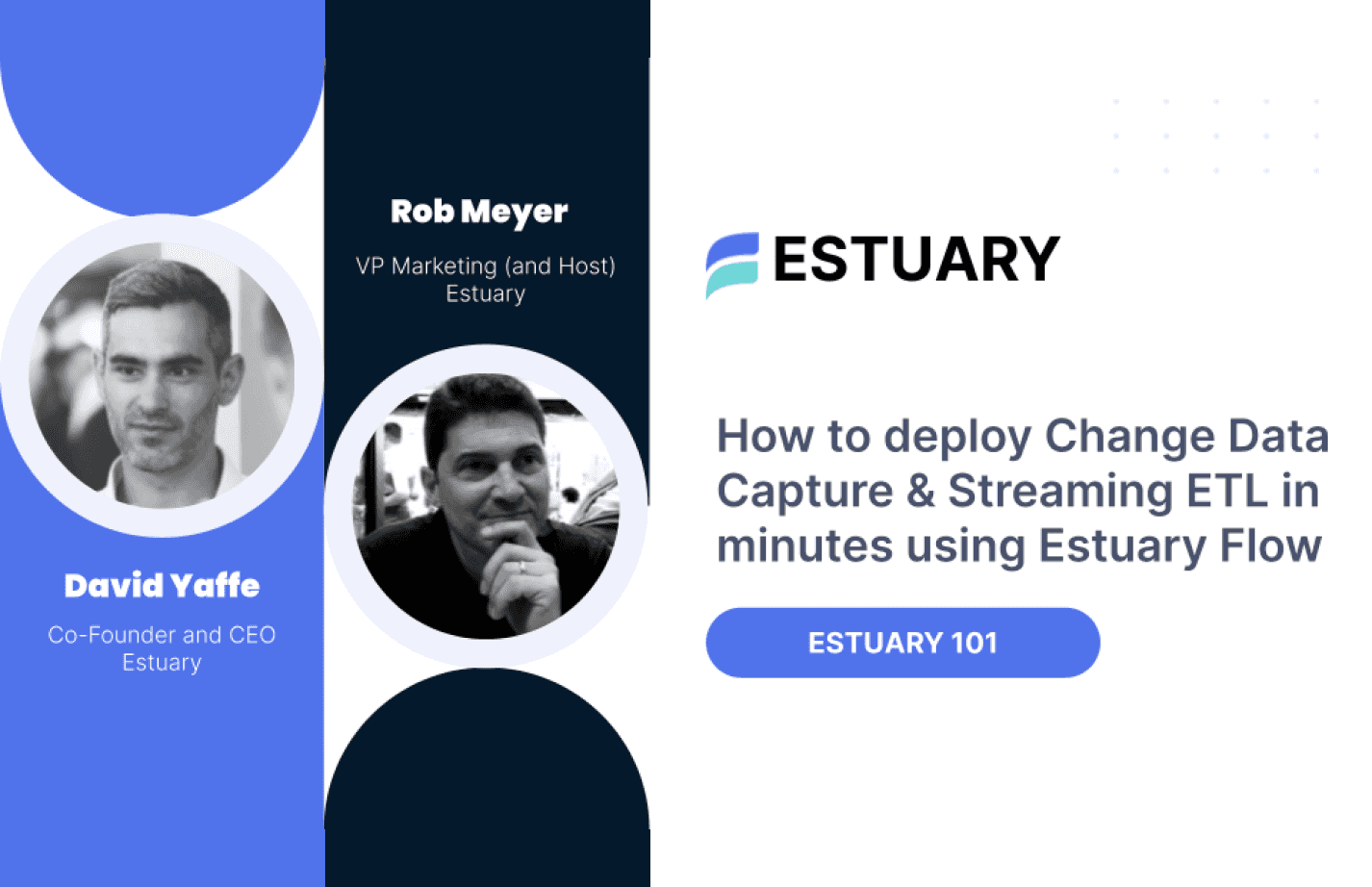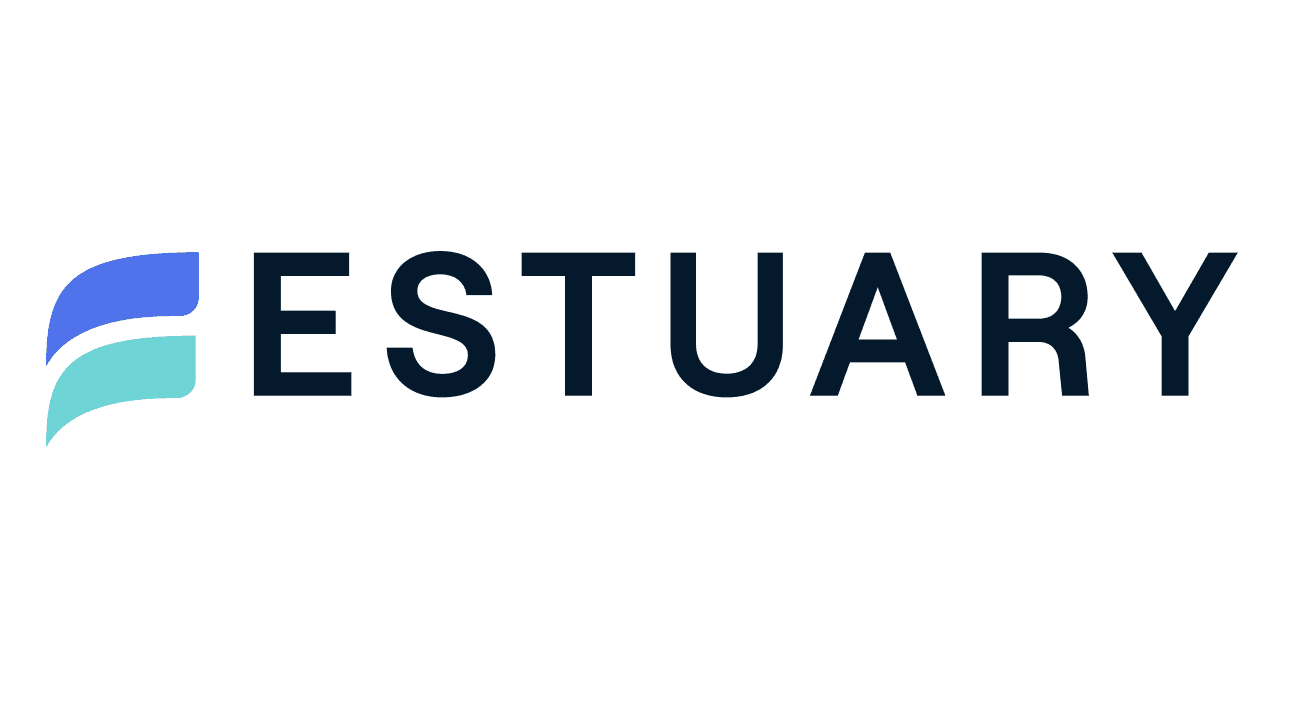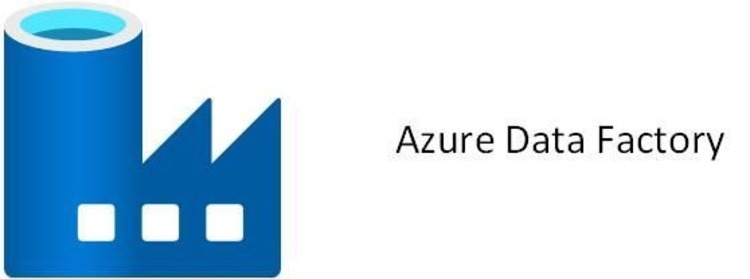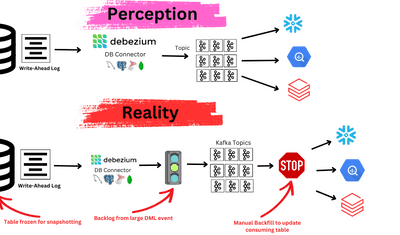
As modern data stacks grow more complex, simply moving data from point A to point B is no longer enough. Businesses now require data replication tools that not only copy data between systems, but also support advanced data integration, ETL (extract, transform, load), and ELT (extract, load, transform) workflows. These tools form the backbone of real-time analytics, cross-platform synchronization, and resilient architecture.
Whether you're replicating data across cloud warehouses, syncing microservices, or ensuring zero-downtime failovers, choosing the right platform can dramatically affect performance, consistency, and scalability. Some tools specialize in real-time data streaming, while others offer rich orchestration for batch pipelines or point-in-time recovery.
In this guide, we explore the top data replication tools for 2025, analyzing their capabilities across replication, transformation, and integration. From agile startups to enterprise-grade platforms, these solutions help data teams ensure continuity, reliability, and insight at scale.
What Are Data Replication Tools?
Data replication tools are software solutions that automatically copy and synchronize data between two or more systems, databases, or storage environments. Their core purpose is to ensure that accurate, up-to-date copies of data exist across multiple locations—whether for analytics, backup, operational redundancy, or distributed access.
Unlike traditional ETL or ELT tools that often move data in scheduled batches, many replication platforms support real-time or near-real-time sync, making them essential for applications that rely on data freshness and system availability.
Key Functions of Data Replication Tools:
- Real-Time Sync: Instantly propagate changes from source to target systems using change data capture (CDC).
- Multi-Location Redundancy: Maintain identical datasets across regions or clouds to support high availability.
- Integration with ETL/ELT Pipelines: Many tools blend replication with transformation capabilities, enabling combined data movement and modeling.
- Disaster Recovery: Quickly restore operations by switching to replicated systems if the primary source fails.
- Read Optimization: Distribute read-heavy workloads across replicas to reduce latency and improve performance.
Replication tools are a cornerstone of modern data infrastructure, especially for businesses running analytics, AI, or customer-facing platforms in real time, by bridging the gap between data integration and high-availability architecture.
Types of Data Replication
- Synchronous: Changes to the source data are immediately mirrored on all replicas. This ensures consistency but can be slower.
- Asynchronous: Changes are copied to replicas after a delay. This offers better performance but might have temporary inconsistencies.
- Semi-Synchronous: Combines aspects of both, providing a balance between consistency and performance.
Top 9 Data Replication Tools for 2025
With dozens of platforms on the market, finding the right data replication tool comes down to your use case—real-time sync, cloud migration, or analytics integration. Below, we’ve curated a list of the top data replication tools in 2025 that offer standout performance, scalability, and compatibility across modern data stacks.
1. Estuary Flow
Best for: Real-time replication and streaming data integration across warehouses, databases, and analytics platforms.
Estuary Flow is a high-performance data replication and integration platform built for real-time use cases. It combines streaming-first architecture with powerful transformation capabilities, enabling teams to move data continuously between systems without lag or data loss.
Estuary Flow supports both ETL and ELT patterns, making it a flexible choice for data engineers and analysts alike. Built on top of the Gazette streaming broker, Flow backs all replicated data in cloud storage (GCS or AWS) for durability and scalability.
Key Features
- Real-Time Replication: Stream data with sub-second latency across systems.
- Modular Pipelines: Declarative pipeline design for seamless integration, transformation, and delivery.
- Scalable Architecture: Distributed by design, supports large volumes and high-concurrency environments.
- Connectors for Everything: Out-of-the-box support for databases, data warehouses, event streams, and SaaS tools.
- Schema Enforcement: Maintain strong data contracts to prevent downstream errors.
Estuary Flow offers a generous free tier—perfect for testing real-time pipelines without upfront cost. Try it for free or explore the developer docs to get started.
2. Qlik Replicate
Best for: High-volume change data capture (CDC) and zero-downtime data migrations.
Qlik Replicate is a powerful data replication tool designed for both real-time and bulk movement of data across heterogeneous environments. It supports various sources and targets, making it a go-to choice for organizations with diverse systems.
Qlik is especially popular for enterprise-grade data integration and modernization initiatives, thanks to its performance, CDC capabilities, and native support for cloud warehouses, mainframes, and legacy databases.
Key features of Qlik Replicate
- Universal Connectivity: Supports RDBMS, cloud warehouses, mainframes, streaming platforms, and more.
- CDC at Scale: Efficiently captures and replicates changes from source to destination with low latency.
- SAP Optimization: Built-in support for SAP environments with deep integration for analytics and operational data replication.
- Secure & Reliable: Role-based access controls, SSL encryption, and automated failover for enterprise-grade security.
3. IBM Informix
Best for: High-speed replication across distributed databases and hybrid environments.
IBM Informix is a proven data replication solution with a strong focus on performance, reliability, and automation. It supports both real-time and scheduled replication across on-premise and cloud systems, making it well-suited for hybrid infrastructures and enterprise-grade deployments.
With built-in automated replication management and flexible configuration options, Informix minimizes administrative overhead while ensuring that data stays consistent across replicas, even during upgrades or failovers.
Key features of IBM Informix
- Automated Failover & Recovery: Keeps replication processes running smoothly with self-healing capabilities.
- Flexible Replication Modes: Supports both synchronous and asynchronous replication across versions or different database platforms.
- Real-Time Analytics Ready: Enables instant data availability for real-time decision-making and operational analytics.
- Low-Latency Architecture: Optimized for high-throughput environments with minimal replication lag.
4. Fivetran
Best for: Automated data replication and transformation with minimal engineering effort.
Fivetran is a widely adopted ETL and ELT platform that simplifies data replication by offering fully managed connectors for hundreds of sources. It’s known for ease of use, powerful automation, and strong support for schema evolution and change data capture (CDC). However, the platform’s pricing can become steep as data volumes and connector usage grow.
Fivetran is designed for teams that want to offload the operational complexity of data integration and focus more on insights than infrastructure.
Key features of Fivetran
- 300+ Prebuilt Connectors: Out-of-the-box support for popular apps, databases, and cloud services.
- Fully Managed Pipelines: No-code setup with automatic schema handling, normalization, and error recovery.
- High-Speed CDC: Efficient change tracking for low-latency replication.
- Enterprise-Ready: SOC 2 compliance, role-based access, and strong SLAs for data reliability.
Great for organizations that prioritize automation, scalability, and minimal maintenance, but may be less flexible for highly customized or cost-sensitive environments.
5. Hevo Data
Best for: No-code ELT pipelines and near real-time data replication from SaaS apps and databases to cloud warehouses.
Hevo Data is a no-code data pipeline platform that simplifies data replication and integration. It supports over 150 data sources, enabling seamless data movement into cloud warehouses like BigQuery, Snowflake, and Redshift. While Hevo offers near real-time data replication, it may not be suitable for use cases requiring sub-second latency.
Key features of Hevo Data
- Near Real-Time ELT: Efficiently replicate data with minimal latency into your warehouse for timely analytics.
- Intelligent Schema Mapping: Automatically detects and adapts schema changes from source systems.
- No-Code Interface: Build and manage pipelines without writing code, reducing development time.
- Built-in Monitoring: Track pipeline health with alerts, logs, and status dashboards to ensure data reliability.
6. Amazon ElastiCache
Best for: High-speed data caching and replication to reduce latency in real-time applications.
Amazon ElastiCache is a fully managed in-memory data store that supports Redis, Memcached, and now Valkey. While not a traditional data replication platform, it’s widely used to replicate frequently accessed data for low-latency, high-throughput applications like gaming, financial services, and real-time analytics. However, it’s not designed for long-term data persistence or cross-system synchronization.
Key features of Amazon ElastiCache
- High-Speed In-Memory Caching: Supports sub-millisecond latency for data access using Redis or Memcached.
- Replication & Autoscaling: Automatically replicates data across replicas and supports vertical/horizontal scaling for Memcached.
- Resilience & Failover: Detects and replaces failed nodes to maintain high availability without manual intervention.
- Secure & Compliant: Integrated with AWS VPC, IAM, and KMS for encryption and secure access control.
7. Airbyte
Best for: Open-source ELT pipelines and custom data replication across modern and legacy sources.
Airbyte is an open-source data integration platform that enables modular ELT pipelines and supports databases, APIs, and SaaS tools. With over 350+ connectors and growing, it allows you to replicate structured data from almost any system to your preferred warehouse or lakehouse.
Airbyte supports change data capture (CDC) for selected databases and offers both cloud-hosted and self-managed deployment options. While it’s powerful and extensible, teams may need engineering effort to manage configurations, connector reliability, and maintenance.
Key Features
- Open-Source & Customizable: Modify or build your own connectors to fit unique use cases.
- 350+ Connectors: Broad ecosystem covering modern and long-tail tools.
- CDC Support: Enables incremental sync for systems like Postgres and MySQL.
- Airbyte Cloud: Managed option with automated scaling, monitoring, and scheduling.
- dbt Integration: Natively supports dbt for in-warehouse data transformations.
8. Azure Data Factory
Best for: Scalable ETL/ELT pipelines and hybrid data integration within the Microsoft ecosystem.
Azure Data Factory (ADF) is a fully managed cloud-based data integration service from Microsoft, designed to orchestrate and automate data movement and transformation across various environments. It supports both ETL (Extract, Transform, Load) and ELT (Extract, Load, Transform) processes, making it versatile for diverse data scenarios .
ADF offers a visual interface for building complex data workflows, enabling users to create, schedule, and monitor data pipelines without extensive coding. It integrates seamlessly with other Azure services, such as Azure Synapse Analytics, Azure Databricks, and Azure Machine Learning, enhancing its capabilities for advanced analytics and machine learning applications.
Key Features
- Hybrid Data Integration: Connects to over 90 built-in connectors, facilitating data movement between on-premises and cloud sources.
- Visual Pipeline Authoring: Drag-and-drop interface for designing data workflows, reducing development time.
- Scalability: Serverless architecture that scales on-demand, efficiently handling large volumes of data.
- Monitoring and Management: Real-time monitoring, alerting, and logging features for effective pipeline management.
- Security and Compliance: Supports encryption at rest and in transit, role-based access control, and complies with various industry standards.
9. CData Sync
Best for: Bi-directional data replication across cloud apps, databases, and data warehouses.
CData Sync is a versatile ETL and ELT platform built for syncing data across a broad range of systems, including SaaS tools, SQL/NoSQL databases, and cloud warehouses. With over 250+ connectors, it supports both one-way and two-way replication, making it particularly valuable for teams managing operational and analytical data flows. That said, the platform may require some SQL or dbt familiarity to unlock its full transformation capabilities.
Key features of CData Sync
- Bi-Directional Sync: Keep data aligned between source and destination systems, in both directions.
- Incremental Replication: Transfers only the latest changes to reduce processing time and resource usage.
- Automation & Scheduling: Build and schedule repeatable pipelines with support for custom run intervals.
- dbt Integration: Supports advanced transformations with dbt for modern data workflows.
- Hybrid Deployment: Available for on-prem, cloud, and containerized environments.
Conclusion
As data infrastructure continues to evolve, choosing the right data replication tool is more than just a technical decision — it's a strategic one. The platforms outlined in this guide represent the best data replication tools of 2025, each offering a unique blend of features for real-time streaming, automated ELT, scalable CDC, and cross-platform integration.
Whether you're a data engineer building high-throughput pipelines, an analyst looking to unify your reporting layers, or a business leader focused on performance and uptime, there's a solution here designed to meet your needs.
Looking to get started quickly with real-time data replication?
Try Estuary Flow for free — a platform purpose-built for streaming, transformation, and integration at scale.
Related Articles
FAQs
1. What are the best data replication tools for real-time data integration?
2. What’s the difference between data replication and traditional ETL?

About the author
With over 15 years in data engineering, a seasoned expert in driving growth for early-stage data companies, focusing on strategies that attract customers and users. Extensive writing provides insights to help companies scale efficiently and effectively in an evolving data landscape.

